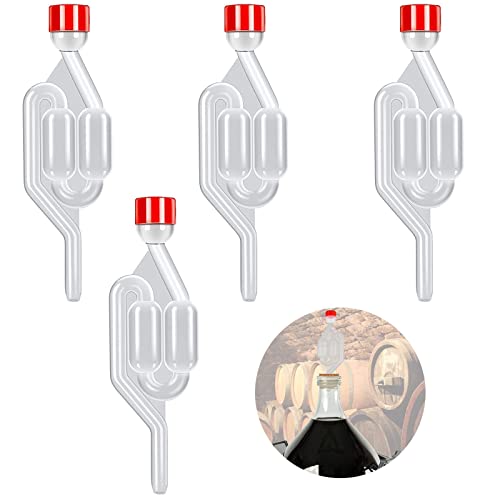guyb
Regular.
Ok, so I took the plunge and invested in the book by Wheeler - Brew Your Own British Real Ale 3rd edition.
I've already read the thread on Yeast for this book, as there is no suggested yeast type for any of the recipes.
I also understand the colour addition through the black malt, so I'll not ask about that.
I have a 24L coolbox which I am converting to a mash tun, I have a 32L aluminum pot for boiling, and a few 25L fermenters.
My questions are around (bearing in mind I've not read the entire book yet):
the use of white sugar in some of the recipes, as I thought the real point of the AG was to use just malt as most of the recipes I've read on here use just malt - Is this to do with efficiency?
The recipes have quantities for different volumes (not sure if this is termed brew length), so x grain for 19L, y for 23L and z for 25L (where x, y, z are increasing quantities) - would I still use 24L of mashing water in the mashtun + sparging water regardless of whether I go for a 19, 23 or 25L brew? I assume I need to get as much liquor out of the grain (taking account of absorption by the grain, deadspace, etc).
As a guide, how much mashwater do I aim for (am assuming initial quantity is 23L - as I need to get the lid on), and how much sparging water?
The advice on here seems to suggest generally that I need 1kg grain to 2.5L of water - but I am struggling to understand how a recipe in the Wheeler book compares, as say for a Boddingtons ale for a 19L brew I need:
2660g of Pale Malt
165g of Crystal Malt
84g white sugar
It seems a bit on the low side
..............Or am I missing something fundamental? :wha: :wha: :wha:
I've already read the thread on Yeast for this book, as there is no suggested yeast type for any of the recipes.
I also understand the colour addition through the black malt, so I'll not ask about that.
I have a 24L coolbox which I am converting to a mash tun, I have a 32L aluminum pot for boiling, and a few 25L fermenters.
My questions are around (bearing in mind I've not read the entire book yet):
the use of white sugar in some of the recipes, as I thought the real point of the AG was to use just malt as most of the recipes I've read on here use just malt - Is this to do with efficiency?
The recipes have quantities for different volumes (not sure if this is termed brew length), so x grain for 19L, y for 23L and z for 25L (where x, y, z are increasing quantities) - would I still use 24L of mashing water in the mashtun + sparging water regardless of whether I go for a 19, 23 or 25L brew? I assume I need to get as much liquor out of the grain (taking account of absorption by the grain, deadspace, etc).
As a guide, how much mashwater do I aim for (am assuming initial quantity is 23L - as I need to get the lid on), and how much sparging water?
The advice on here seems to suggest generally that I need 1kg grain to 2.5L of water - but I am struggling to understand how a recipe in the Wheeler book compares, as say for a Boddingtons ale for a 19L brew I need:
2660g of Pale Malt
165g of Crystal Malt
84g white sugar
It seems a bit on the low side
..............Or am I missing something fundamental? :wha: :wha: :wha:





























![BREWING THERMOMETER STICKERS ACCURATELY MONITOR FERMENTING BEER & WINE LIQUID TEMPERATURES 5PCS HOME BREW SPIRITS WINE LCD ADHESIVE [US]](https://m.media-amazon.com/images/I/311DDjo2X3L._SL500_.jpg)









